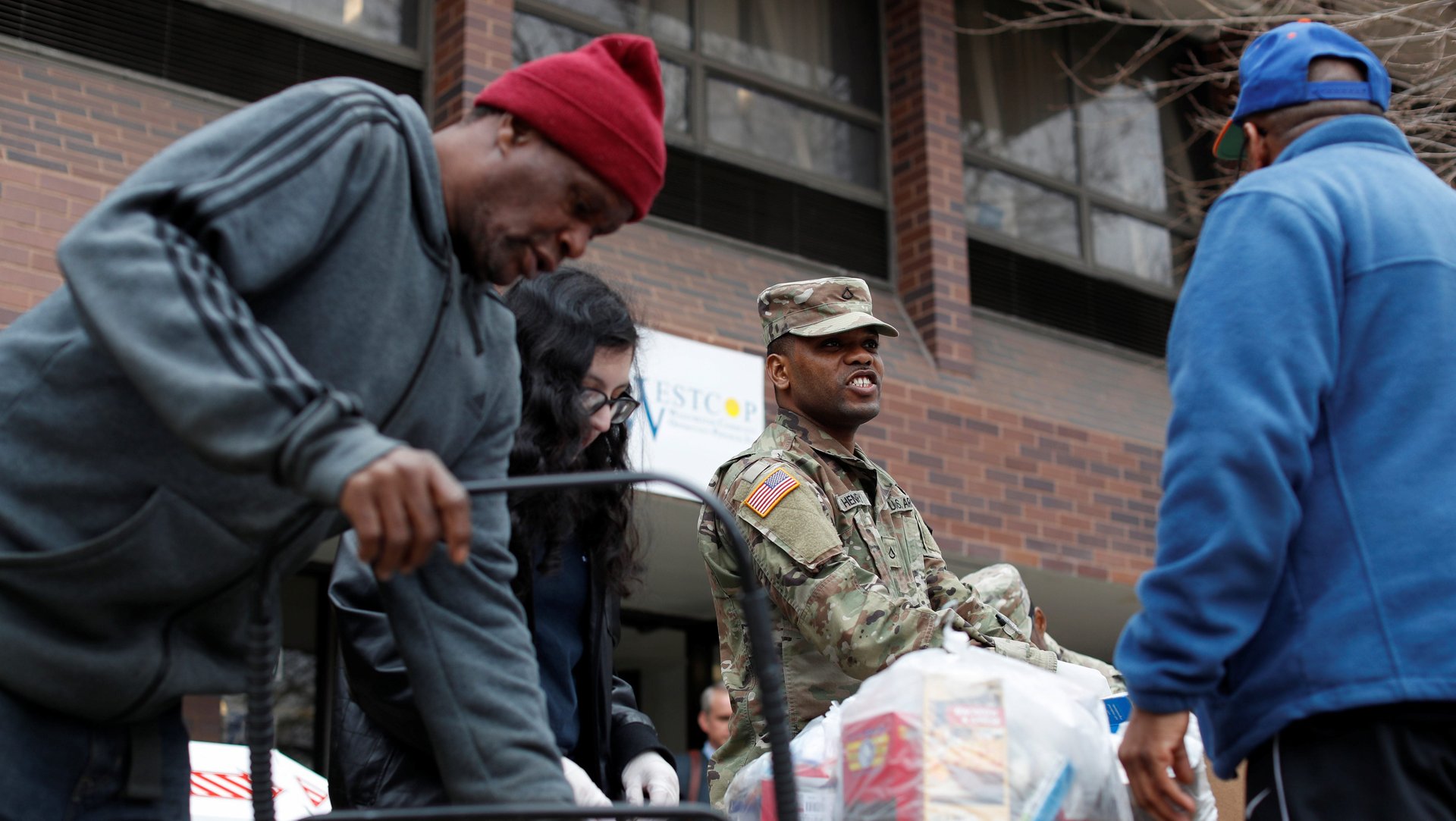Coronavirus is revealing ugly truths about social structure in the US
The coronavirus pandemic is affecting every possible aspect of life—and thus confronting Americans with ugly truths about the way US society functions.


The coronavirus pandemic is affecting every possible aspect of life—and thus confronting Americans with ugly truths about the way US society functions.
Any crisis or emergency throws into sharp relief the lack of a social safety net in the US. This virus outbreak, the most widespread in decades, is exposing the country’s social vulnerabilities all at the same time. Some of them will be addressed in a comprehensive relief package that Congress and the White House agreed upon on March 13. It includes “paid emergency leave with two weeks of paid sick leave and up to three months of paid family and medical leave,” according to House speaker Nancy Pelosi, as well as free coronavirus testing for those who don’t have health insurance and increased food aid and Medicaid funding.
But this solution only underscores the fact that Americans lack some basic protections on a day-to-day basis. For one thing, the paid sick leave provision in the coronavirus bill does not apply to companies with 500 or more employees, as The New York Times notes. Such large companies employ more than half of US workers.
These facts of life that are not new discoveries, and will be known to people who work in these fields or follow news around it. It’s not an exhaustive list, and it’s a highly subjective one, crowdsourced in the Quartz newsroom.
Homelessness and hunger
- With schools shutting down in Europe and in the US, New York, which is the largest school district in the US, has had to face the reality that if it shutters its public schools, hundreds of thousands of children would face extreme difficulties. Around 114,000 New York City students are homeless, and more than 700,000 are poor, The New York Times reports. Many depend on schools for their meals, medical care, and even laundry. In New Rochelle, a town north of New York hit hard by the coronavirus, volunteers and the National Guard had to step in to help with arranging meals for kids in need.
- The issue of schools closing down can have similarly dire consequences for college students, many of whom can’t just pack up their bags and travel back home. More than half of US college students are housing-insecure.
- Many people in the US live with the risk of imminent eviction or foreclosure since they have no savings. If they are unable to work because of coronavirus precautions, the situation becomes more severe. Some cities are considering eviction freezes, and a New York City group of landlords has pledged to halt evictions for the next three months.
Paid leave and privilege
- Americans do not have paid sick leave, which is standard in many countries in normal, pandemic-less circumstances. Some companies have changed their leave policies, and federal lawmakers included it in their relief package.
- The digital divide in the US means that while some students are able to continue their education at home if schools close, many can’t because they do not have internet access. In Pennsylvania, 23% of households do not have access to high-speed internet.
Society’s most vulnerable
- Nursing homes have been, and are expected to continue to be, highly vulnerable to coronavirus infections. Meanwhile, the US does not have affordable elder care figured out. For now, wealthy seniors or their families can afford in-home, 24-hour care (or close to it); others have to move into sometimes crowded, under-staffed facilities. Meanwhile, at-home care workers who are undocumented and working off the books often cannot take paid sick days.
- Because of overcrowding and poor sanitary conditions, prisons and jails are highly susceptible to the spread of the virus. Some jurisdictions are releasing detainees to alleviate the risk, while in others, people might face longer incarceration times due to delays in the justice system caused by the virus. Advocates are pointing to the situation as another reason to eliminate cash bail—a system only used in the United States, which contributes to overincarceration and inequality. Meanwhile, prisoners are paid as little as 16 cents an hour to make hand sanitizer in New York, resurfacing another issue: that of vastly underpaid prison labor. In a worst-case epidemic scenario, inmates in New York will also have to dig graves for the city’s population.
Lila MacLellan contributed to this piece, as did other Quartz reporters. This post has been updated.